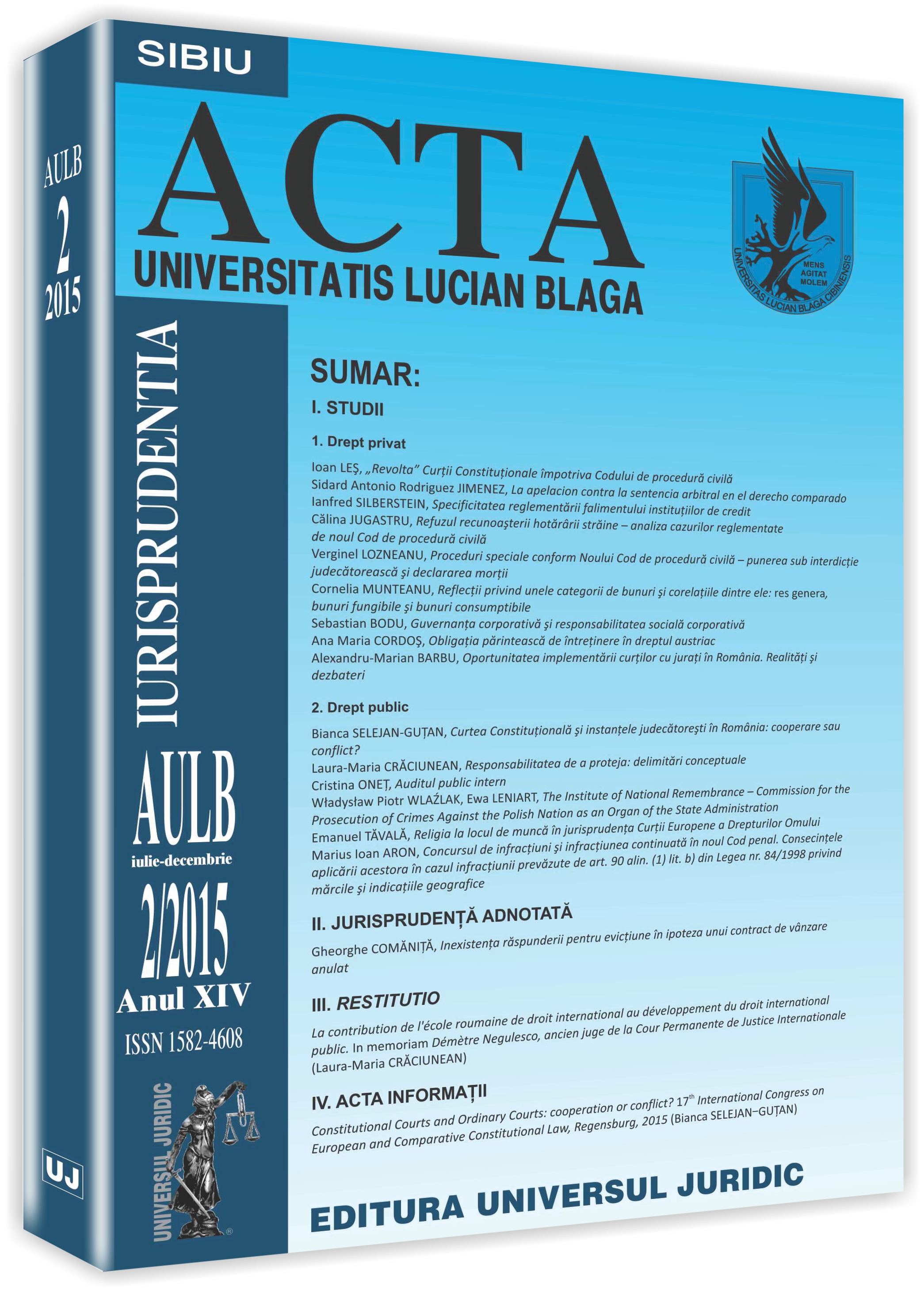The Institute of National Remembrance – Commission for the Prosecution of Crimes Against the Polish Nation as an Organ of the State Administration
The Institute of National Remembrance – Commission for the Prosecution of Crimes Against the Polish Nation as an Organ of the State Administration
Author(s): Ewa Leniart, Wladyslaw Piotr WlazlakSubject(s): Law, Constitution, Jurisprudence
Published by: Universul Juridic
Keywords: The Institute of National Remembrance; administrative organ; providing access to; archival materials; powers;
Summary/Abstract: The Institute of National Remembrance – Commission for the Prosecution of Crimes Against the Polish Nation was called into existence on the basis of the Act of 18 December 1998 on the Institute of National Remembrance – Commission for the Prosecution of Crimes Against the Polish Nation. The Institute is an organ of the state administration. It is a separate part of the state apparatus, established on the basis of the law, acting in the name and for the benefit of the state in the range of powers conferred on it by the law. The scope of activities of the Institute is regulated by the Act on the Institute. Its tasks are regulated by Art. 1 in connection with Art. 8 passage 1 of the Act on the Institute. These regulations state that the aim of the Institute is record keeping, collection, storage, organization, protection, providing access to and publishing documents of the state security authorities from the years 1944-1990 and the security authorities of the Third Reich and the Soviet Union, prosecution of perpetrators of Nazi and communist crimes, and other crimes which are crimes against peace, genocide, or war crimes, protection of personal data of the people whose documents gathered in the archives of the Institute concern, running public educational programmes, the search for burial sites of victims of the communist regime in the years 1956-1989 and participation in the granting of the status of an anti-communist opposition activist. Particularly noteworthy is the fact that the task of enabling access to archival materials is carried out by the Institute in the form of an administrative decision. It is one of the main arguments in favor of recognition of the Institute as an organ of the state administration. The importance of this entity and the importance of the tasks assigned to it is highlighted by the fact that a special status of the Institute's budget has been guaranteed, which also enjoys budget autonomy.
Journal: Acta Universitatis Lucian Blaga. Iurisprudentia
- Issue Year: 2015
- Issue No: 02
- Page Range: 206-215
- Page Count: 10
- Language: English

